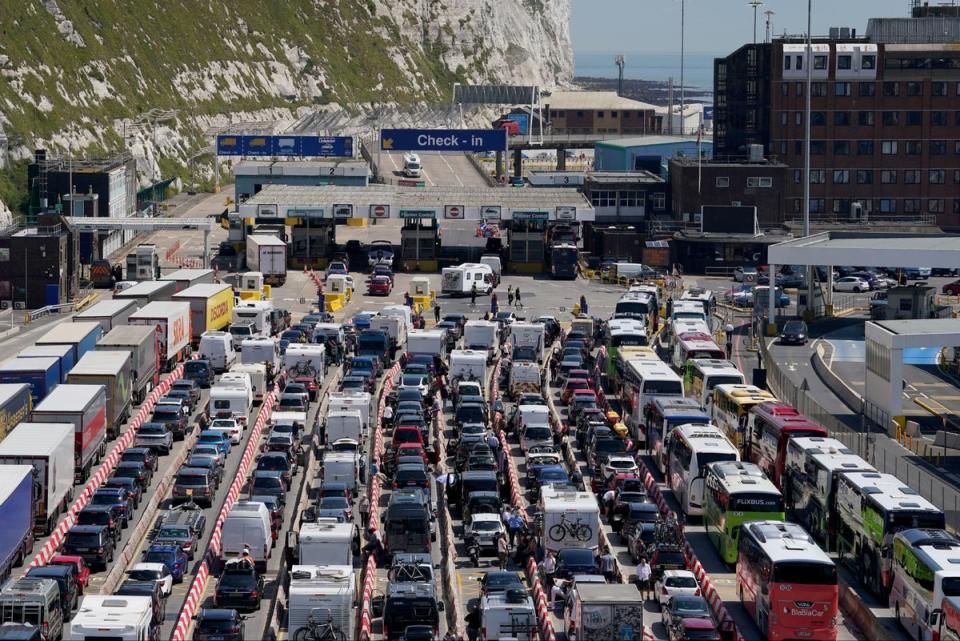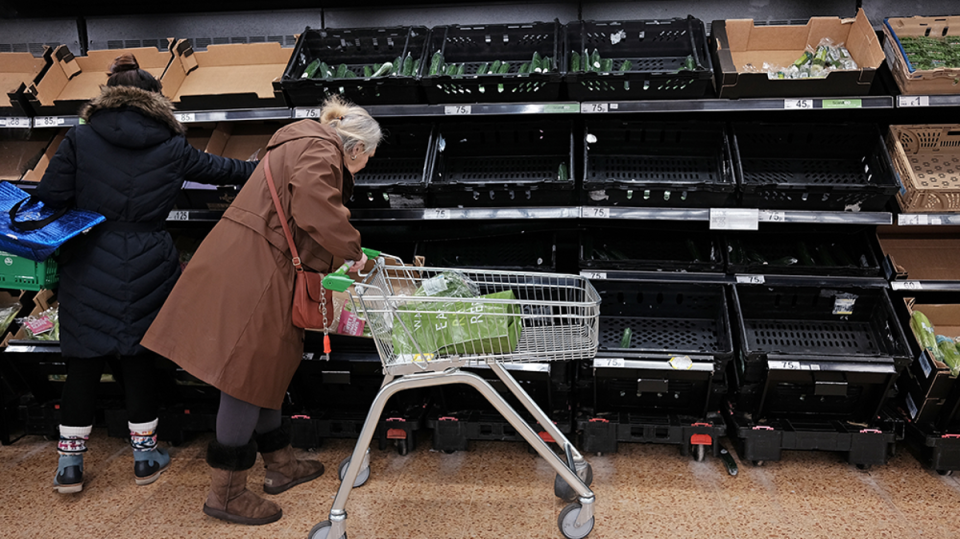New Brexit red tape creating ‘existential’ crisis, say food and flower firms

A fresh wave of Brexit red tape is creating an “existential” crisis for Britain’s fresh food and flower firms, business chiefs have warned.
Fruit, vegetable and flower importers are urging Rishi Sunak’s government to provide more detail on the long-delayed physical checks coming in April.
The National Farmers’ Union (NFU) said the looming paperwork and inspections on imports could pose an “existential threat” to Britain’s horticultural businesses.
And while the union is warning of disruption to young plants imported by UK greenhouse growers, industry chiefs have warned of a wider impact across the fresh food sector.
Nigel Jenny, head of the Fresh Produce Consortium (FPC), told The Independent that extra bureaucracy and border controls coming in April look set to bring “huge costs and huge delays”.
With the rules for different categories of agri-food products still unclear, the FPC’s chief executive said firms were having to prepare for extra costs of up to £2,000 per lorry.
“Which is ridiculous,” said Mr Jenny. “It would mean many kinds of consignments would be unviable – the charges could be more than profitability.”

The fresh food boss said the government must provide more clarity – warning that many British firms’ relationship with EU exporters were now at risk from the red tape burden.
“The danger is disenfranchising exporters willing to trade with the UK. We can’t jeopardise those ties with EU firms,” he warned.
The warnings come after severe shortages of tomatoes, peppers and other salad vegetables forced Britain’s major supermarkets to restrict sales last year – with photos of empty shelves mocked by people living in Europe.
Andrea Rasca, founder of the Mercato Metropolitano community markets, said he was worried the new checks would be difficult to manage, and could result in “damaged and destroyed fruit and plants”.
He warned that problems for fresh fruit and veg producers could “negatively impact food prices and the variety of food available” on Britain’s shelves and food stalls.
Amid fears that shortages could become even more common, the government has warned business bosses that new checks on imports from the EU will add around £400m a year in extra costs.
Another big wave of post-Brexit border checks on food, animal and plant products – this time on imports – were set to start coming into force from October 2023.
But Mr Sunak’s government delayed the introduction until 2024 over fears the extra burden could push up food inflation, which is finally beginning to ease from the peaks of the cost of living crisis.
New health certificates are required for imports from 31 January. Then there will be a further three months before sanitary and phytosanitary (SPS) checks on medium-risk food, animal and plant products come into force on 30 April.

Ministers have been accused of an “absolutely shambolic” rollout after repeated delays to the new “target operating model” for the borders. And businesses are still worried that border controls may not be ready.
The country’s largest farming group said growers dependent on young plants from the EU – such as soft fruits like strawberries and raspberries – look set to be hit by disruption. The NFU warned it could hinder next year’s crops, and even put some firms at risk.
Martin Emmett, the NFU’s horticulture and potatoes board chair, told The Guardian: “There is a concern that border control points can pose an existential threat to horticultural businesses in this country.”
Nick Marston, chair of the British Berry Growers (BBG), told the newspaper that they were worried about “the government’s ability to process all those incoming plants on a timely basis”. The group said the losses to growers from delays could add up to hundreds of thousands of pounds.
The NFU wants the government to let imports bypass physical inspection at new sites near border posts – like the major facility at Sevington, near Dover – with “place of destination” checks.
A spokesperson Department for Environment, Food and Rural Affairs (Defra) said new import controls were coming in “phases” to support businesses “and ensure efficient trade of plants is maintained between the EU and Great Britain”.
They added: “The current ‘places of destination’ scheme was always designed to be a temporary measure until inspections commenced at border control posts.
“The controls that the new model introduces play a vital role in keeping the UK safe, protecting our food supply chains and farming sector from damaging disease outbreaks.”

 Yahoo News
Yahoo News 
